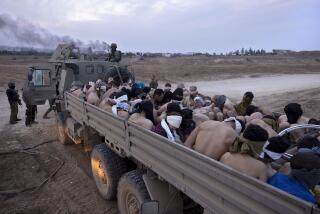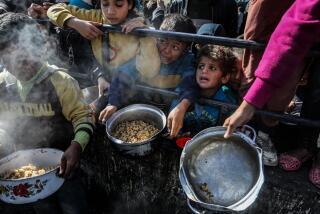Doctors Expose Medical Role in Torture
- Share via
SANTIAGO — In Greece during the regime of the colonels in the early 1970s, physicians participated in torture sessions, but the world medical community remained silent. In the mid-’70s in Portugal, the same complicity occurred, but no one spoke of it. In South Africa, eight years passed before that country’s medical council was forced to take action against the two doctors who in 1977 covered up the torture death of black activist Steve Biko. Investigations by human-rights groups have revealed cases of forced psychiatric confinement in the Soviet Union, where hospital authorities and psychiatrists have subjected dissidents to severe physical and mental abuse through the misuse of drugs.
The list of countries where medical expertise has been perverted to serve political ends is long. The list of medical associations that have acknowledged misconduct by some of their members is far shorter. In Uruguay the medical union has begun investigations into the conduct of about 60 physicians who collaborated with that country’s former military rulers. In Chile, in the midst of growing confrontation between the military regime and many sectors of Chilean society, our medical association has begun the same process.
Recently the American Assn. for the Advancement of Science awarded the Chilean Medical Assn. its 1986 Scientific Freedom and Responsibility Award for our struggle to end torture in Chile and our efforts to deal with some of our members’ participation in these barbarous acts. The association, which represents 14,000 Chilean physicians, shared this award with Dr. Victor Paschkis, an American scientist who has dedicated his life to promoting greater social responsibility in science. We recognize the paradox: Although the award prompts us to redouble our efforts against torture, it also reveals the shameful extent to which some of our colleagues have abandoned ethical medical practice.
During the early days of the military regime here, scores of physicians were detained, tortured and in some cases never heard from again. Some doctors cooperated with the security forces by assisting in the persecution of medical professionals and thousands of fellow citizens.
After the 1973 coup the military authorities, like their counterparts elsewhere in South America, took control of the medical association. They replaced elected officers with doctors loyal to the new regime. The association lost the authority to investigate complaints of unethical behavior, including allegations that physicians were cooperating in torture. But complaints were made to human-rights organizations. Physicians working with these groups brought the reports to the attention of their colleagues and to the local branches of the Chilean Medical Assn. The association is indebted to these physicians for having persisted, often at great personal risk.
In 1982 the military government reinstated the association’s right to hold democratic elections. Recently we discovered several documents that were left behind by former association officials describing how hundreds of physicians were persecuted by the security forces. We now know that several doctors personally participated in physical and psychological torture. One drew hearts on the chest of those to be executed. Another even killed a colleague from the same hospital. Most of these doctors, however, acted as attendants to torture by examining detainees before or after torture, and by falsifying medical certificates issued before a detainee’s release from prison.
For four years now, our members have worked to try in some way to make amends for these abuses. In 1983 the association approved a code of ethics for medical personnel who may be called on to provide medical care to prisoners or to examine torture victims in detention. We have called on the military government to end torture. Thus far the association has expelled two members for their complicity in torture, and is investigating the cases of five others. Our investigations continue despite threats against our leaders, difficulties in obtaining medical records from detention centers and military clinics, and the understandable reluctance of victims and witnesses to testify for fear of reprisals.
Today three of our members are in detention for giving medical attention to a shooting victim who requested assistance at a private clinic. Our association has supported these physicians, called for their immediate release and vigorously protested the security forces’ removal of patient files from the clinic.
Before the military coup our country did not need organizations to defend human rights, but today it is impossible to exist without them. The Chilean Medical Assn. accepted the American scientists’ award with a mixture of shame and pride: a sense of shame because if we Chileans had fought to prevent the overthrow of our democratic government such an award would not have been necessary, and of pride because it is a tribute to the necessary and dangerous struggle that we have undertaken. That struggle will continue until our country is free of state-sanctioned brutality.
More to Read
Sign up for Essential California
The most important California stories and recommendations in your inbox every morning.
You may occasionally receive promotional content from the Los Angeles Times.













